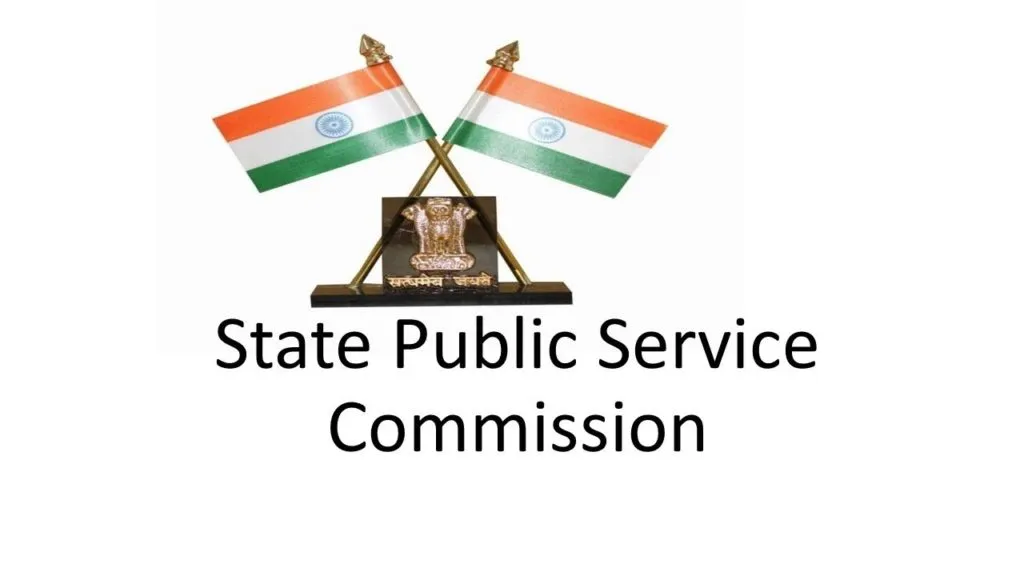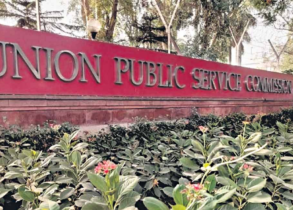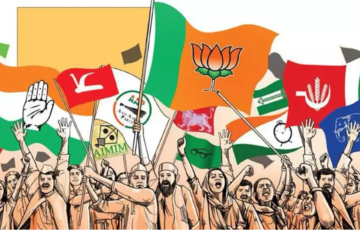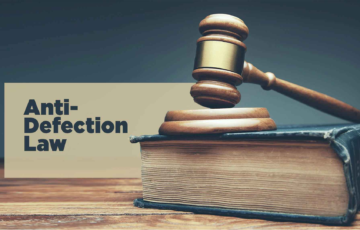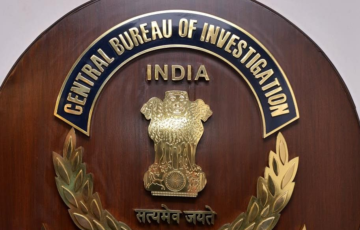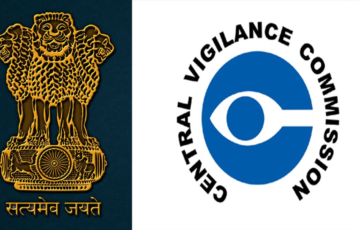STATE PUBLIC SERVICE COMMISSION
Introduction
- State Public Service Commissions (SPSC) in India are constitutional bodies established under Articles 315 to 323 of the Indian Constitution. They are responsible for conducting civil service examinations, advising the state government on personnel matters, and ensuring fair selection. SPSC members are appointed by the Governor, and the Constitution safeguards their independence and impartiality.
Composition
- Composition: An SPSC is typically composed of a chairman and other members. The exact number of members is not specified in the Constitution, and it is at the discretion of the state governor to determine the strength of the commission.
- Appointment: The state governor is responsible for appointing the chairman and other members of the SPSC.
- Conditions of Service: The Constitution grants the governor the authority to determine the conditions of service, including salaries and other benefits, for the chairman and other members of the SPSC.
- Tenure: Members of the SPSC hold office for a term of six years or until they reach the age of 62, whichever is earlier.
- Qualifications: The Constitution does not specify specific qualifications for commission membership. However, it stipulates that at least one-half of the members must have held office for at least 10 years either under the government of India or a state government.
- Reappointment: Individuals who have previously served as members of a Public Service Commission are ineligible for reappointment to the same office.
- Office of Profit: Persons to be appointed as SPSC members should not hold any office of profit under the central or state government, ensuring their independence and impartiality.
- Acting Chairman: The governor can appoint one of the SPSC members as an acting chairman in two circumstances: when the chairman’s office becomes vacant and when the chairman is unable to discharge their responsibilities due to absence or any other reason. The acting chairman serves until the new chairman assumes office or the chairman can resume their duties.
Removal
- As specified in Article 317 of the Constitution of India the provisions for removal are as follows:
- Grounds for Removal:
- Members of both UPSC and SPSCs can be removed by the President before the expiry of their term if any of the following circumstances exist:
- Bankruptcy (insolvency) of the member.
- Engagement in any paid employment outside their official duties.
- Becoming mentally or bodily infirm.
- Misbehaviour:
- The term “misbehaviour” is defined in the Constitution in this context. According to the Constitution, a chairman or any other member of an SPSC is guilty of misbehaviour if they:
- Are concerned or interested in any contract or agreement made by the Government of India or a state government.
- Participate in any way in the profit or benefit of such a contract or agreement other than as a member and in common with other members of an incorporated company.
- Process of Removal for Misbehaviour:
- In cases of misbehaviour, the matter is enquired by the Supreme Court.
- If the member is found guilty of misbehaviour by the Supreme Court, the President can remove them from their membership of the commission.
- The decision of the Supreme Court is binding on the President in such matters.
- Suspension: The President has the power to suspend members of the UPSC during the period when a matter is being inquired by the Supreme Court.
- Suspension in SPSCs: In the case of the SPSCs, the power to suspend a member is vested in the Governor of the State. This means that the Governor can suspend a member of the SPSC while an inquiry into their conduct is ongoing.
Powers and Functions
- State Public Service Commissions (SPSCs) in India perform various functions in relation to state services, much like the functions of the Union Public Service Commission (UPSC) for central services.
- Conducting Examinations: SPSCs administer examinations for appointments to various state services, including civil services, police services, and other state government positions. These examinations are designed to select qualified and competent candidates for these positions.
- Advisory Role: SPSCs are consulted on several human resource management-related matters. They provide advice and recommendations to the state government on issues such as civil service recruitment, appointments, promotions, and transfers within the state services.
- Referral by President or Governor: SPSCs have the responsibility to advise on any matter referred to them by the President of India or the Governor of the State. This can include providing recommendations on specific appointments or other matters related to state services.
- Compensation for Government Employees: SPSCs may be involved in cases where government employees have suffered problems or financial losses due to negligence on the part of the government. They can recommend compensation or address such grievances.
- Punishment Measures: SPSCs have the authority to deal with matters related to disciplinary actions and punishment for government employees who have violated discipline or acted against the interests of the state government. This includes taking appropriate measures in cases of misconduct or misconduct.
Role of State Public Service Commission
- “Watchdog of the Merit System”: The SPSC serves as the guardian of the merit-based recruitment system within the state government. It ensures that appointments to various state services are made based on merit, qualifications, and other relevant criteria.
- Recruitment of State Employees: One of the primary functions of the SPSC is to conduct examinations and assessments for the recruitment of state government employees. These examinations aim to identify qualified and competent candidates for various state government positions.
- Advisory Role: The SPSC provides advisory recommendations to the state government on various matters, including:
- Recruitment of civil servants and filling of civil posts.
- Principles and procedures to be followed in making appointments, promotions, and transfers within the state services.
- Disciplinary actions and promotions for government employees.
- Any matter referred to the SPSC by the state government or the Governor.
- Non-Binding Recommendations: It’s important to note that the recommendations made by the SPSC are advisory in nature, and they are not binding on the state government. The government has the discretion to accept or reject the suggestions put forth by the commission.
- Government Accountability: The government is held accountable to the state legislature for its decisions regarding the SPSC’s recommendations. This means that the government must justify its actions and decisions, especially if it chooses to deviate from the recommendations of the commission.
- Legislative Limitations: The state government has the authority to enact laws that define the scope of the SPSC’s advisory responsibilities. This means that the government can specify the areas in which it seeks the advice of the commission and the extent to which it follows such advice.
Independence of State Public Service Commission
- Security of Tenure: The chairman or a member of an SPSC can only be dismissed in the manner and under the circumstances specified in the Constitution. This provides them with a degree of security of tenure, ensuring that they are not subject to arbitrary removal.
- Terms of Service: The terms of service for the chairman and members of an SPSC, as decided by the governor, cannot be changed to their detriment after their appointment. This protection ensures that their conditions of service remain consistent during their tenure.
- Expenditure: The full expenditure, including the salaries, allowances, and pensions of the chairman and members of the SPSC, is charged to the state’s consolidated fund. This means that their financial compensation is not subject to a vote in the state legislature and is guaranteed by the state’s finances.
- Eligibility for Other Positions: The chairman of an SPSC is eligible for appointment as the chairman or a member of the Union Public Service Commission (UPSC) or as the chairman of any other SPSC. However, they are not eligible for appointment to any other position within the Government of India or a state.
- Post-Term Eligibility: After leaving office, a member of an SPSC is eligible for appointment as the chairman or a member of the UPSC, or as the chairman of that SPSC or any other SPSC. This provides them with opportunities for further service in related roles.
- Ineligibility for Reappointment: After completing their first term, the chairman or a member of an SPSC is ineligible for reappointment to the same position, meaning they cannot serve a second term.
Limitations
- Appointments Reserved for Backward Classes: The SPSC is not consulted when appointments or offices are reserved in favor of any backward class of individuals. Reservation policies for socially and educationally backward classes are typically determined by the state government and are not within the purview of the SPSC.
- Appointments Considering SCs and STs: When making appointments to services and posts, taking into account the claims of scheduled castes (SCs) and scheduled tribes (STs), the SPSC is not typically involved. These reservations for SCs and STs are often governed by separate rules and policies set by the state government.
- Exclusion of Jobs and Services: The governor has the authority to exclude certain jobs, services, and subjects from the jurisdiction of the SPSC. This means that specific appointments, positions, or services may not fall under the purview of the SPSC, and the governor has the discretion to make such exclusions.
- Rules by the Governor: According to the Constitution, the governor is empowered to enact rules that identify the subjects in which the SPSC is not required to be consulted on state services and jobs. These rules provide the framework for determining which matters are outside the SPSC’s scope.
Recent Issues with the State Public Service Commission
- Allegations of corruption and malpractice: SPSCs have been accused of corruption and malpractice in a number of ways, such as leaking exam papers, rigging results, and giving preferential treatment to candidates with political connections. These allegations have eroded public trust in SPSCs and made it difficult for them to attract and retain talented candidates.
- Political interference: SPSCs are supposed to be independent bodies, but they have often been accused of being subject to political interference. This can happen in a number of ways, such as through the appointment of politically connected individuals to SPSCs, or through pressure from politicians to influence the recruitment process. Political interference can undermine the integrity of SPSCs and lead to the selection of unqualified candidates.
- Inefficiencies and delays: SPSCs have also been criticized for their inefficiencies and delays in conducting recruitment examinations. This can lead to frustration and hardship for candidates, and can also damage the reputation of SPSCs.
- Lack of transparency and accountability: SPSCs have also been criticized for their lack of transparency and accountability. This can make it difficult for the public to scrutinize the recruitment process and to hold SPSCs accountable for their actions.
The government has taken a number of measures to address these challenges, including:
- Enacting laws to make SPSCs more independent and transparent: A number of states have enacted laws to make SPSCs more independent and transparent. These laws typically include provisions for the appointment of independent members to SPSCs, for the disclosure of information about the recruitment process, and for the establishment of grievance redressal mechanisms.
- Setting up anti-corruption bodies to investigate allegations of corruption against SPSCs: A number of states have set up anti-corruption bodies to investigate allegations of corruption against SPSCs. These bodies are typically independent of the government and have the power to investigate and prosecute corrupt officials.
- Streamlining the recruitment process and using technology to improve efficiency: A number of states have streamlined the recruitment process and are using technology to improve efficiency. This has helped to reduce delays in conducting examinations and publishing results.
- Capacity building for SPSCs: The government is also providing capacity building training to SPSCs to help them improve their functioning. This training covers a range of topics, such as recruitment best practices, anti-corruption measures, and transparency and accountability.
| Joint State Public Service Commission (JSPSC) |
|

